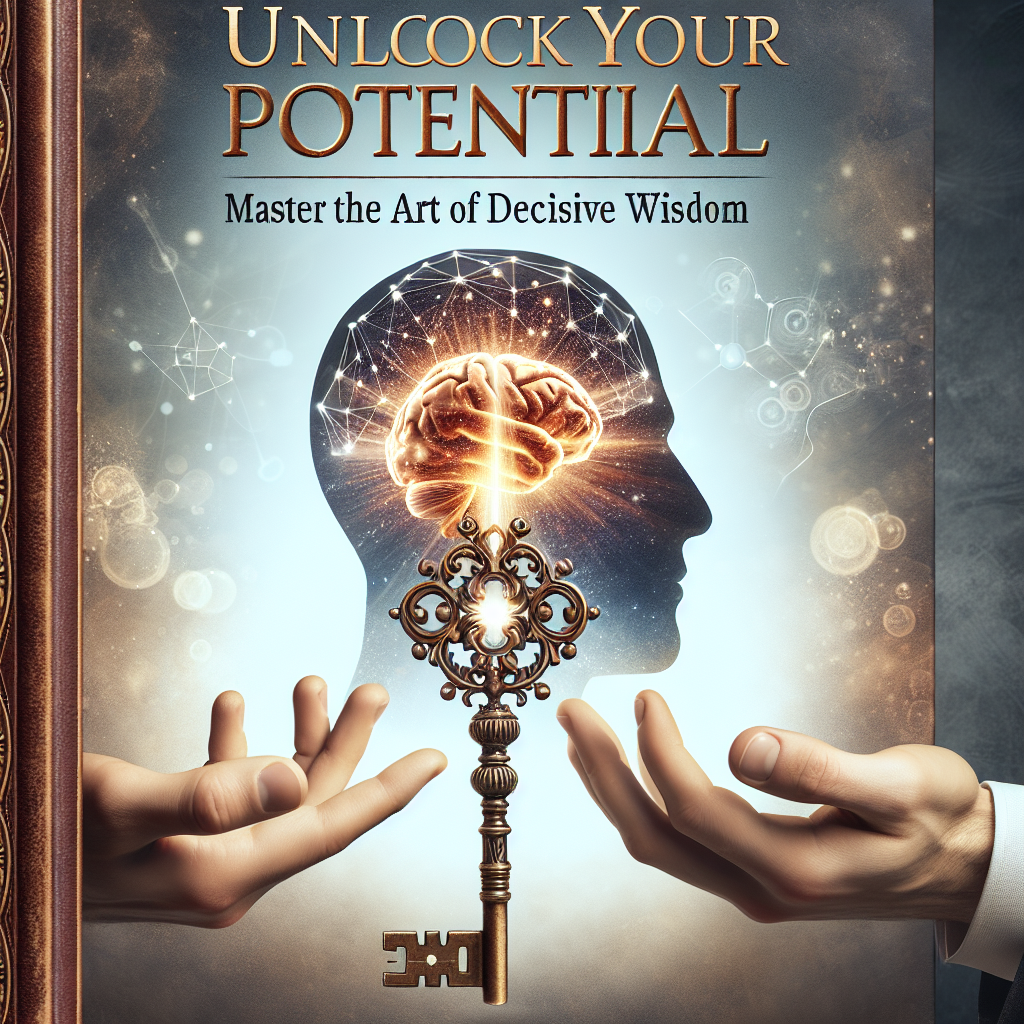In today’s fast-paced world, making decisions can be challenging. Many people feel overwhelmed by choices and unsure which path to take. In this article, we will explore how to unlock your potential by mastering the art of decisive wisdom. Through simple tips, engaging stories, and powerful strategies, you can become a confident decision-maker.
What is Decisive Wisdom
Decisive wisdom is the ability to make choices quickly and confidently. It involves understanding the situation, weighing your options, and trusting your gut feelings. Here are some key points about decisive wisdom:
- Comfort with uncertainty: Not every decision has a clear right or wrong answer. Learn to be okay with the unknown.
- Clarity in thinking: Understand your goals and priorities. This clarity will guide your decisions.
- Self-trust: Believing in your ability to make choices is crucial. Trust that you can learn from any outcome, good or bad.
Why Decisive Wisdom is Important
Being decisive can lead to many benefits in your life. Here are just a few reasons why mastering this skill is essential:
- Confidence boost: The more decisions you make, the more confident you become.
- Less stress: Decisive people worry less. They know they can handle whatever comes next.
- Better opportunities: When you make decisions quickly, you can seize opportunities before they slip away.
- Leadership qualities: People respect those who can make choices effectively.
Roadblocks to Decisive Wisdom
While many of us desire decisive wisdom, obstacles can stand in our way. Here are some common roadblocks:
- Fear of failure: Worrying about making the wrong choice can hold you back.
- Overthinking: Sometimes, too many options can lead to confusion.
- Perfectionism: Wanting everything to be perfect can slow your decision-making process.
- Lack of information: Without the right knowledge, making a decision becomes difficult.
Steps to Master Decisive Wisdom
Now that we understand what decisive wisdom is and why it is essential let’s look at steps to help you master it.
Step One Embrace the Process
Decisive wisdom is not just about the end result; it is about the process too. Accept that making decisions may feel uncomfortable. Don’t rush! Take a moment to breathe.
Step Two Gather Information
Collect the information you need to make informed choices. Here are tips to help you:
- Ask questions: Talk to people who have been in your situation before.
- Do research: Use online resources to learn about your options.
- List pros and cons: Writing down advantages and disadvantages can clarify your thoughts.
Step Three Trust Your Instincts
Sometimes, your gut feeling is a powerful guide. Trust your instincts! Here’s how:
- Pay attention to feelings: Notice what feels right or wrong in your body.
- Reflect on past experiences: Think about similar choices you have made before. How did they turn out?
- Practice mindfulness: Stay aware of your thoughts and feelings to help you better understand your instincts.
Step Four Set a Time Limit
Giving yourself a deadline can help you make decisions faster. Here’s how to set limits:
- Decide how long you need: Whether it’s a few minutes or a couple of days, know your time frame.
- Stick to it: Once your time is up, make your choice confidently.
- Avoid procrastination: Don’t let fear make you delay; stick to your timeline.
Step Five Learn from Experience
Each decision you make is a chance to learn. Here are ways to gain insights:
- Review past choices: What went well? What didn’t? Reflecting can help you improve.
- Adjust your process: If something didn’t work, think about how you can change your approach next time.
- Celebrate successes: Take the time to appreciate what went right in your decisions.
The Role of Positive Thinking
Positive thinking plays a key role in decision-making. It helps you view choices as opportunities rather than obstacles. Here’s how to cultivate a positive mindset:
- Stay optimistic: Focus on what could go well instead of what might go wrong.
- Practice gratitude: Recognize the good things in your life. It can shift your perspective.
- Surround yourself with positivity: Be around people who uplift and encourage you.
The Power of Visualization
Visualization is a technique that can enhance your decision-making process. It involves imagining the possible outcomes of your choices. Here are some ways to use visualization:
- Create mental images: Picture what success looks like for you after making a decision.
- Imagine different scenarios: Think about the best and worst outcomes to understand your options better.
- Reinforce your commitment: Visualizing your success can motivate you to follow through with your choices.
Effective Decision-Making Techniques
There are various techniques you can use to enhance your decision-making skills. Here are some helpful strategies:
- The 10-10-10 Rule: Consider how your decision will affect you in 10 minutes, 10 months, and 10 years.
- Decision Matrix: A table that allows you to rate your options based on important criteria, making it easier to see the best choice.
- Five Whys: Ask why multiple times (usually five) to dig deeper into the reasons behind your decision.
Conclusion
Mastering the art of decisive wisdom is a journey that everyone can embark upon. By embracing the process, gathering information, trusting your instincts, setting time limits, and learning from experiences, you can unlock your potential. Remember, being decisive is not just about making choices; it’s about building confidence, reducing stress, and enhancing your life in countless ways.
Now that you have the tools to master your decision-making, take a deep breath and start making those important choices today. Each step will bring you closer to becoming a more decisive and self-assured individual. Unlock your potential today and embrace the power of decisive wisdom that will guide you throughout your life.

